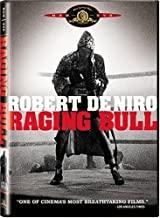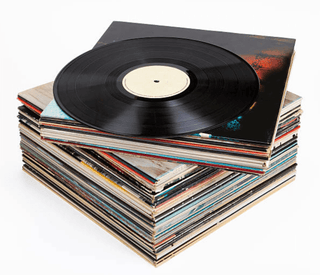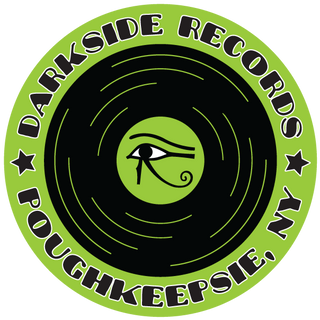Raging Bull

Martin Scorsese's brutal character study incisively portrays the true rise and fall and redemption of middleweight boxer Jake La Motta, a violent man in and out of the ring who thrives on his ability (and desire) to take a beating. Opening with the spectacle of the over-the-hill La Motta (Robert De Niro) practicing his 1960s night-club act, the film flashes back to 1940s New York, when Jake's career is on the rise. Despite pressure from the local mobsters, Jake trusts his brother Joey (Joe Pesci) to help him make it to a title bout against Sugar Ray Robinson the honest way; the Mob, however, will not cave in. Jake gets the title bout, and blonde teenage second wife Vickie (Cathy Moriarty), but success does nothing to exorcise his demons, even as he channels his rage into boxing. Alienating Vickie and Joey, and disastrously gaining weight, Jake has destroyed his personal and professional lives by the 1950s. After he hits bottom, however, Jake emerges with a gleam of self-awareness, as he sits rehearsing Marlon Brando's On the Waterfront speech in his dressing room mirror: "I coulda been a contender, I coulda been somebody." Working with a script adapted by Mardik Martin and Paul Schrader from La Motta's memoirs, Scorsese and De Niro sought to make an uncompromising portrait of an unlikable man and his ruthless profession. Eschewing uplifting Rocky-like boxing movie conventions, their Jake is relentlessly cruel and self-destructive; the only peace he can make is with himself. Michael Chapman's stark black-and-white photography creates a documentary/tabloid realism; the production famously shut down so that De Niro could gain 50-plus pounds. Raging Bull opened in late 1980 to raves for its artistry and revulsion for its protagonist; despite eight Oscar nominations, it underperformed at the box office, as audiences increasingly turned away from "difficult" films in the late '70s and early '80s. The Academy concurred, passing over Scorsese's work for Best Director and Picture in favor of Robert Redford and Ordinary People, although De Niro won a much-deserved Oscar, as did the film's editor, Thelma Schoonmaker. Oscar or no Oscar, Raging Bull has often been cited as the best American film of the 1980s.
Martin Scorsese's brutal character study incisively portrays the true rise and fall and redemption of middleweight boxer Jake La Motta, a violent man in and out of the ring who thrives on his ability (and desire) to take a beating. Opening with the spectacle of the over-the-hill La Motta (Robert De Niro) practicing his 1960s night-club act, the film flashes back to 1940s New York, when Jake's career is on the rise. Despite pressure from the local mobsters, Jake trusts his brother Joey (Joe Pesci) to help him make it to a title bout against Sugar Ray Robinson the honest way; the Mob, however, will not cave in. Jake gets the title bout, and blonde teenage second wife Vickie (Cathy Moriarty), but success does nothing to exorcise his demons, even as he channels his rage into boxing. Alienating Vickie and Joey, and disastrously gaining weight, Jake has destroyed his personal and professional lives by the 1950s. After he hits bottom, however, Jake emerges with a gleam of self-awareness, as he sits rehearsing Marlon Brando's On the Waterfront speech in his dressing room mirror: "I coulda been a contender, I coulda been somebody." Working with a script adapted by Mardik Martin and Paul Schrader from La Motta's memoirs, Scorsese and De Niro sought to make an uncompromising portrait of an unlikable man and his ruthless profession. Eschewing uplifting Rocky-like boxing movie conventions, their Jake is relentlessly cruel and self-destructive; the only peace he can make is with himself. Michael Chapman's stark black-and-white photography creates a documentary/tabloid realism; the production famously shut down so that De Niro could gain 50-plus pounds. Raging Bull opened in late 1980 to raves for its artistry and revulsion for its protagonist; despite eight Oscar nominations, it underperformed at the box office, as audiences increasingly turned away from "difficult" films in the late '70s and early '80s. The Academy concurred, passing over Scorsese's work for Best Director and Picture in favor of Robert Redford and Ordinary People, although De Niro won a much-deserved Oscar, as did the film's editor, Thelma Schoonmaker. Oscar or no Oscar, Raging Bull has often been cited as the best American film of the 1980s.



